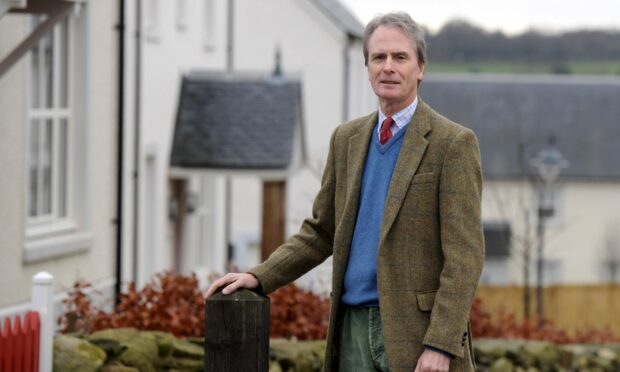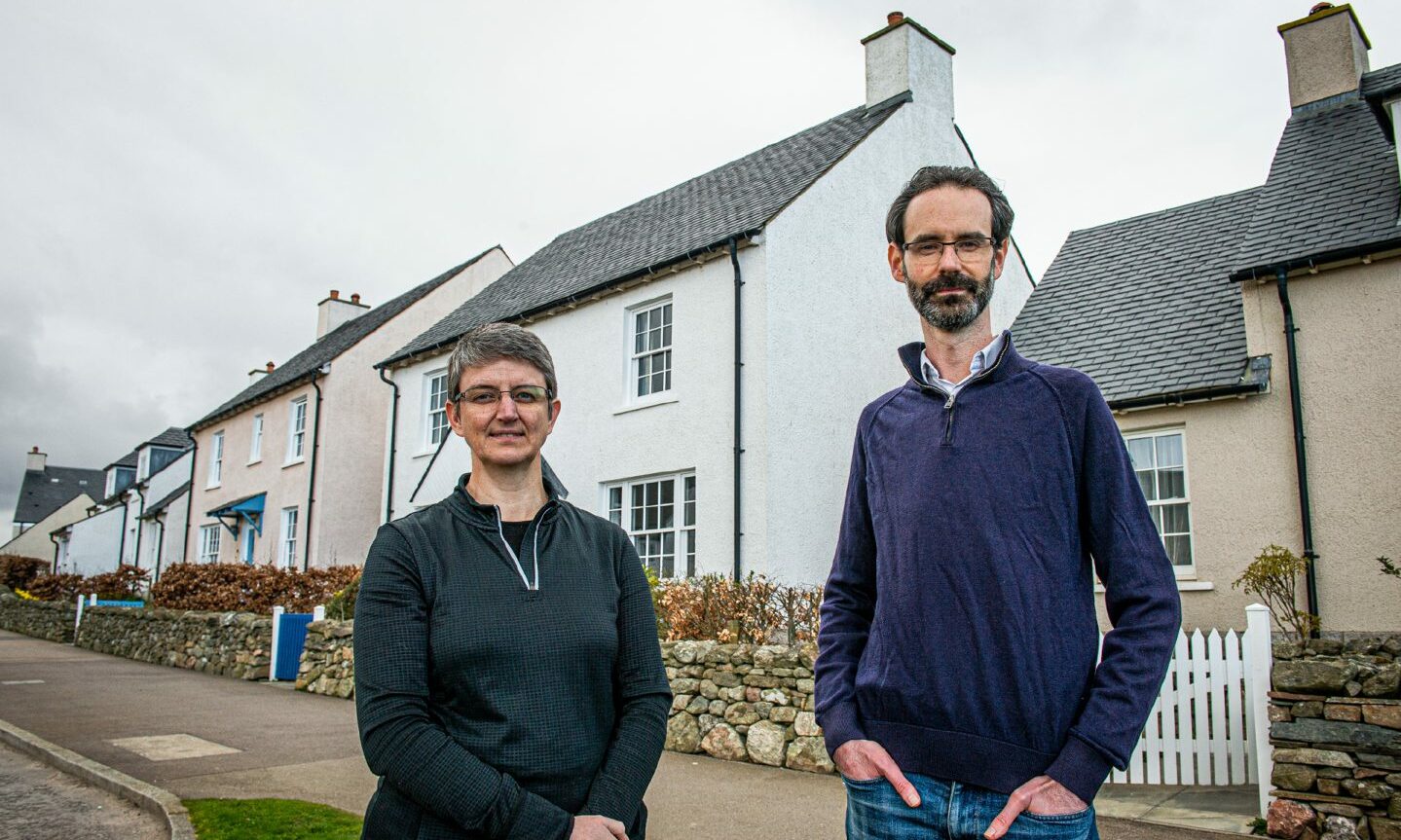David Carnegie, the Duke of Fife, has come to the defence of a policy restricting the installation of solar panels at Chapelton.
The newly-created Aberdeenshire town of Chapelton is planned to eventually have 8,000 houses, and is right now home to around 750 residents.
The expanding community is being built on land owned by Mr Carnegie, who is the fourth Duke of Fife, and it has special rules in place in order to preserve its amenity and maintain a consistent design.
One of these rules is a ban on placing solar panels onto properties facing onto main roads and squares in the town, which lies just west of Newtonhill.
This week, some residents wanting to install solar technology on their homes spoke out against this rule, and a Green MSP called the situation “bizarre and obtuse”.
But the duke has today passionately defended the restrictions, arguing that it is “in the broader scale of things, immaterial” and that Chapelton has “sustainability at its heart”.
Duke says Chapelton has ‘sustainability at its heart’… and says solar farm could be on the horizon
Mr Carnegie is director of the Elsick Development Company, which is the organisation overseeing the development of the new town of Chapelton.
And and he’s also the director of the Chapelton Community Interest Company (CCIC), which is in charge of many of the rules for the area.
He says that the CCIC’s position to limit solar panel placements that face onto the busiest parts of the town is a “considered one” and that the group is not against solar panels in principle.
In fact, the duke said that plans are being discussed to create a solar panel farm, as part of efforts to make sure electricity used by Chapelton residents comes from renewable sources.
He also pointed out various other factors that he argues makes Chapelton a sustainable, eco-friendly community.
Mr Carnegie said: “The design of Chapelton puts sustainability at its heart.
“The overall design aims to achieve a town of walkable neighbourhoods with plenty of green space.
“Reducing transport usage is far the most serious issue that new housing can address, and that is at the core of the design.
“In addition, the houses are all designed to the latest standards to limit the use of energy for heating.”
Plans for Chapelton to become a conservation area in the future
Although there are still thousands of homes still to be built, the duke says he has a lot of long-term ambitions for Chapelton, and rules have been set to try and achieve these — including solar panel limitations.
He said: “We’re proud of what the design team and the housebuilders have achieved.
“When people buy a house in Chapelton, they are aware that there are a range of restrictions designed to protect their investment from untoward changes made by others.
“We aspire to Chapelton becoming a conservation area of the future, so we do not wish to see changes made that will detract from that.”
He argued that properties in the town are all “modern and designed to the latest standards”, and “they are already very efficient”.
The duke added: “If people wish to go even further that is good, and we’re not against solar panels in principle as you will see if you visit.
“It’s only on the elevations facing the main roads that they are not allowed”.
When we visited Chapelton to meet with residents, we noted a good number of properties with solar panels present.
But they were not facing onto primary routes.
Mr Carnegie said: “People are free to put them up on other elevations, at the back of their properties, on their garages or in their gardens.
“There are also alternatives to solar — air-source heat pumps for instance.”
Duke argues that because future Chapelton energy will come from renewables, debate over solar panels is ‘irrelevant’
Mr Carnegie insisted that the rules affecting people like Alastair Struthers, who has a home on Greenlaw Road but can’t put panels on the south side of his house, do not affect that many residents.
Mr Struthers told us he challenged the policy not just for his own benefit, but for the rest of the community and all future homes.
The Duke of Fife said: “The limitation affects relatively few properties, being only those with south-facing elevations onto main roads, so it is, in the broader scale of things, immaterial.
“Particularly so when you consider that in the future, the electricity consumed in Chapelton will come from a renewable source anyway, rendering this whole discussion irrelevant.
“Apart from the general screening of the grid supply, we are in discussions to provide a solar farm for that purpose.”
The duke said as a result, “We do not see the need to change the current guidelines so that a few can commercialise their roof spaces in the meantime”.
He argues that to do so would be to the “longer-term detriment of the wider community”.






Conversation